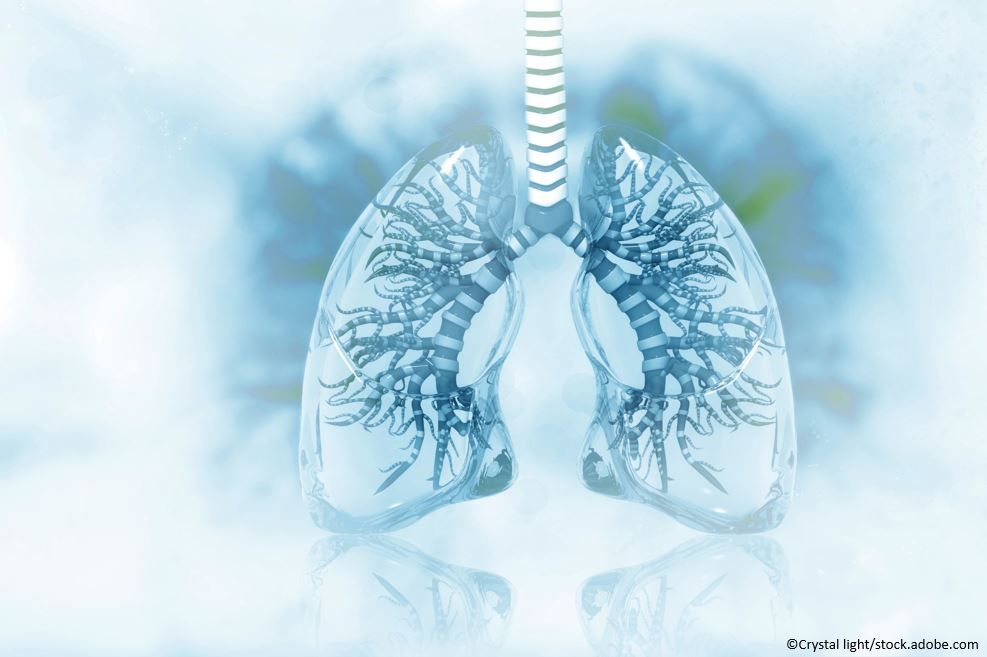- Clinical Technology
- Adult Immunization
- Hepatology
- Pediatric Immunization
- Screening
- Psychiatry
- Allergy
- Women's Health
- Cardiology
- Pediatrics
- Dermatology
- Endocrinology
- Pain Management
- Gastroenterology
- Infectious Disease
- Obesity Medicine
- Rheumatology
- Nephrology
- Neurology
- Pulmonology
ATS 2021: Triple Combination Therapy May Benefit “Wide Spectrum” of Patients with COPD
American Thoracic Society 2021 International Conference: In a subset of patients from the ETHOS study, triple combination therapy was found beneficial for those with moderate COPD.

In a subset of patients from the ETHOS study, triple combination therapy was found to be beneficial for those with moderate chronic obstructive pulmonary disease (COPD), according to a study abstract being presented at the upcoming American Thoracic Society International Conference, held May 14-19, 2021.
Led by Gary T. Ferguson, MD, one of the original co-authors of the ETHOS study, researchers aimed to demonstrate that triple combination therapy with budesonide, glycopyrrolate, and formoterol fumarate can not only benefit patients with severe or very severe COPD, but also with moderate COPD when compared with dual therapy.
To do this, researchers analyzed a subgroup of patients from the ETHOS study with moderate COPD based on post-bronchodilator lung function assessed during screening.
The ETHOS study was a phase 3, randomized, double-blind, 52-week study that evaluated the efficacy and safety of budesonide/glycopyrrolate/formoterol fumarate (BGF) at 2 dose levels (320/18/9.6 µg and 160/18/9.6 µg), compared to glycopyrrolate/formoterol fumarate (GFF) 18/9.6 µg and budesonide/formoterol fumarate (BFF) 320/9.6 µg in patients with moderate-to-very severe COPD.
Eligible participants had a postbronchodilator forced expiratory volume in 1 second (FEV1) 25%-65% of the predicted normal value and a documented history of ≥1 moderate or severe COPD exacerbation in the previous year. All treatments were administered via metered dose inhaler.
In the new analysis, researchers report results for the 2427 patients who had moderate COPD (FEV1 ≥50%) at baseline for the following endpoints:
- Rate of moderate or severe exacerbations
- Lung function
- St George’s Respiratory Questionnaire (SGRQ) scores
- Rescue medication use
- Time to clinically important deterioration (CID)
Results showed that BGF 320/18/9.6 µg and 160/18/9.6 µg reduced the rate of moderate or severe exacerbations vs GFF (rate ratios of 0.79 and 0.70, respectively; unadjusted p=0.0123 and p=0.0002), with numerical improvements seen for both doses of BGF vs BFF.
Researchers observed improvements in lung function outcomes (trough FEV1 and FEV1 area under curve from 0-4 hours [AUC0-4]) for both BGF doses vs the dual therapies, with larger benefits vs BFF than compared to GFF.
Also, a higher proportion of patients who received BGF 320/18/9.6 µg achieved the minimum clinically important difference in SGRQ score (decrease of ≥4 units; 53.7%) vs GFF (46.9%). Proportions were also numerically higher for BGF 320/18/9.6 µg vs BFF (50.6%) and for BGF 160/18/9.6 µg compared to both dual therapies.
“Consistent with the overall ETHOS population, BGF showed benefits versus dual therapies on exacerbations, CID, symptoms, and quality of life among patients with moderate COPD, with larger effects versus GFF on exacerbations and symptoms and larger effects versus BFF on lung function,” concluded authors. “Taken together, these findings demonstrate that triple therapy provides benefits for a wide spectrum of patients with COPD.”
